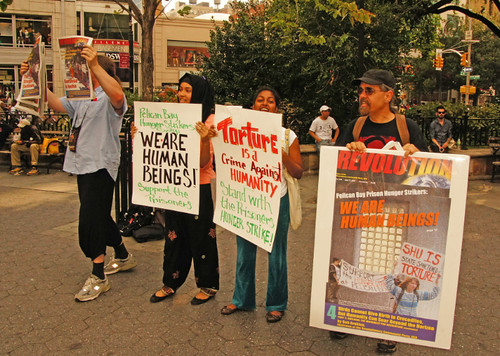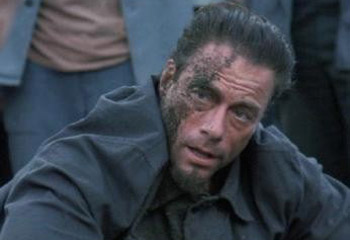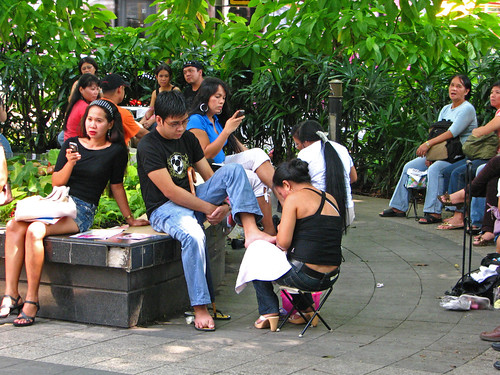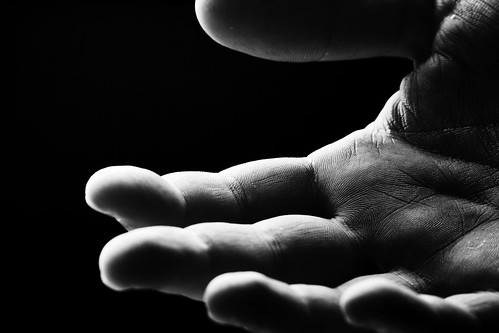What a privilege!
I was invited to speak at the University on a panel on
"Modern Day Gender Equality - Uniting or Alienating?" It was hosted by the Women's Collective at the University of Sydney, and I was one of 5 panelists.
It was a real honour! I was sharing a stage with several remarkable people:
Professor Raewyn Connell, from the University of Sydney, an absurdly prolific writer on gender relations (and recently on masculinity) and international professor,
casual professor and media spokesperson
Jane Caro
Alan Cinis, a Greens Council member for the district of Leichardt,
and
Nina Funnell, who is a journalist and researcher at the University of NSW (at the moment, I think she is working on a project on "sexting," or cell phone sex-text messaging, among young girls).
***
I had 3 main initial observations of the evening as the scene was set and began to unfold...
1. The audience was composed mostly of young people, presumably university students.
2. Amazingly, while a majority of the audience was female, a good quarter of the room was male (as far as gender-reading goes, anyway)! It was amazing! It has never been my experience, when I was at university, to see that large a proportion of men interested in an intellectual discussion on gender.
3. I was, as far as I know, the only queer person and person of colour on the panel, Les Sigh...
[16/08/11 update: Professor Connell is a trans-woman... my apologies for my cis-gender presumptiveness!]
***
The panel discussion was arranged in a Q&A style, with the facilitators Kate & Georgina posing questions for us as panellists, and then us choosing to respond or not.
A variety of issues were discussed...
Raewyn Connell

Professor Connell was quietly intellectual. While she contributed the least in terms of stage time, I felt that she always had incisive points to make. In particular, I was really pleased at her continuous nudging toward an intersectional (in terms of sexuality, class, region, etc.) and global (transnational) understanding of gender equity.
Jane Caro

Caro focussed primarily on the continued work that needs to be done (in the name of feminism) in order to achieve full equity for women, particularly in the public-professional domains, where women are still underrepresented in positions of high political power. While I definitely appreciated her important re-emphasis on the work that needs to be done in particular around the reclamation of the identity politic of 'feminism' away from stereotypes around 'man-hating' and 'bra-burning,' etc. (especially given my current professional work on young gay men's issues, and most of my social circle being men), I did take issue with one of her points around feminism being the world's MOST noble cause. I chipped in with my two cents about anti-colonialist, anti-capitalist, anti-racist, etc. social justice issues. Caro, quite charitably, responded with an acknowledgement of the extremity of her polemic (she used to work in advertising). Then she also spoke out about the specific, somewhat unique nobility about feminist, and gay and lesbian social justice causes, as they involve often having to speak out against the oppression that is often perpetuated by our own very loved ones, our immediate family (rather than, say, an oppressive boss, or slave owner, etc.). She called this challenge the unique 'nobility' of gender- and sexuality-based social justice movements.
I suppose I tentatively concur.
Nina Funnell

I related well with Nina, in part because I'd actually worked with her previously on a Men and Feminism workshop that we co-presented at last year's "F Conference" (on Feminism) in Sydney, and in part because she is also my contemporary in terms of age. She talked about the meaning of 'mainstream media' and her support of affirmative action, women's autonomous spaces, and the ways that we might consider moving away from conceptions of the 'media' as a strictly monolithic entity.
Alan Cinis

I must admit that I did not relate to Alan's words quite as much as I would have liked; I think this was in part because, as he himself admitted, that he had some trouble hearing or understanding the questions, but I suspect it's in part because I disagreed with the fundamental position he was taking, which was encouraging a sort of individualism... In response to the question posed "Does affirmative action around gender work?" his response was Yes and No (true enough), but that we best understand it by looking at the individual merits of people, rather than simply through gendered lens (somewhat true... but of course the point here, one that he did not address, was the problem of both unconscious and structural sexism, so that the very merits we supposedly herald in all persons are ignored or passed over when they are traits exhibited by women applicants, if any even apply at all!).
At the same time, it was really good to be in the presence of another man who was at least willing and wanting to engage on the issue of gender in a way that was critically self-reflexive (he talked about his relationship to a former acting career, and the specific sorts of expectations of male as compared to female actors).
Me

When I first spoke, I first acknowledged my very real nervousness around being surrounded by quite conventionally 'successful' individuals (two university professors, a politician, and a journalist). Whew! But fortunately, I felt like my area of interest and focus was on the role of men in feminism, something which most of the other panellists had not categorically prepared talks around.
My 3 main points:
1. Our role as men is to listen to the concerns of women, and to engage and support feminist projects which are about the emancipation of all people from oppressive gendered systems (which, as they stand under patriarchy, disproportionately disenfranchise women and materially privilege men).
2. Part of this engagement is also about rehabilitating ourselves from problematic conceptions of masculinity. I mentioned the importance of male 'safe spaces' where we can allow ourselves to love other men without alcohol, and without homophobic/heteronormative qualifications (i.e. without the
"No Homo" bullshit).
3. Not to misattribute our alienation as men to the important work that feminists have historically done (which, indeed, have paved the way for us to have language around this very alienation).
I also talked a little bit about the profit-driven industry of pornography and its role in enslaving men by commoditising our sexual desires, selling them back to us (i.e. selling us DESIRE itself), and then numbing us to relationships (rendering us socially awkward) by habituating ourselves to levels of stimulation that are usually unmatched by our interactions with others in-person.
This was also the first time I have EVER spoken about porn in this way in a public/group setting. It was an interesting exercise in humility, and also some good training for how I might want to bring it up in the future (without coming across as anti-sex, anti-depictions of sexuality, anti-pleasure, etc. etc.) Anyway, I think I did a decent job of conveying this point, and this was my covert anti-capitalist critique of the evening...
Professor Connell very wisely raised that these 'crises of masculinity' (of which my fretting about porn was but one example) have been going on for a long time in history, and that it is not uniquely in the age of feminism that men have started worrying in this way. I did suggest, in response, that while men have obviously waxed lyrical about our concerns which were unique to us as men across history, I don't think that we have, trans-historically, framed these concerns in emancipatory language (about our liberation
as men from the problems of our socialisation into male gender,
as gender, and as part of a larger project of gender equality and full liberation per se).
Also, inspired by
Martin Luther King's rhetoric on extremism ("What kind of extremists will we be?"), I discussed the problem of assuming that "unity" is necessarily better than "alienation," when indeed, to be unified in support of oppressive systems (e.g. heteronormative patriarchy) is a LESSER unity, requiring first that we be, correctly, alienated, in order to then later unify under something more grand (e.g. queer-/feminism), which itself will be a unity that will meet its limits (e.g. racist/classist/nationalist assumptions, etc.), require a later alienation, followed by broader unity (e.g. under intersectional, self-reflexivity), meet its limits (e.g. impotent immobility), unify under something more grand etc. etc. ad infinitum.
And throughout all this, never compromising on the insights gained from previous unities and alienations...
We pick our alienations, and then we work with them accordingly. I suppose this was my attempt at speaking 'integrally' (integratively) without strictly using the language of Integral Theory (fucking trademark).
Lastly, in response to an audience member's question-comment on how men have been stunted because of a lack of clarity around changing gender relations, Nina first spoke out and said "Yes, these are some of the ways that patriarchy has crippled men."
And I responded to the question-comment by recalling this incident:
In Wynyard (the 'yuppie central' financial district of Sydney), last year, there was a photographic exhibition featuring the works of a female photographer who had travelled to different parts of the world taking pictures of different people. The exhibition was held in a public space, and also featured some inspirational quotes and captions under some of the photographs.
One of the photographs featured full frontal nudity of smiling black children. This was obviously considered unproblematic enough by the City of Sydney that the exhibition would go ahead without reprieve.
What I expressed to the audience about my experience with this exhibition was that:
1. What if the photographer had been a man?
2. What if the children had been white?
A great blog post by Ray Harris explores just this very issue:
The Naked Child in Art : Ethnographic Photography
Conclusive Reflections?
All in all, it was a really fantastic evening, with some really interesting and stimulating conversation, and I was very much honoured and grateful to have been invited to speak. As often, we never get to share all that we would have liked, and it is sometimes really challenging to cater a set of really complex perceptions and queries to a mixed audience... I personally would have appreciated an Acknowledgement of Country (of the traditional Aboriginal owners of the land upon which our gathering was held), but I think I lacked the political tact to know how to bring it up after the fact of the event's formal commencement.
It does feel incredibly good to be able to share some of my thoughts on feminism, gender and manhood. I feel especially good that I did not speak from a place of ultra Reactionariness (in terms of aggressive ranting about white privilege, heteronormativity, etc.).
It has been precisely 6 years since I graduated from university with a degree in Gender Studies, and I really cherish these opportunities to be able to speak on, educate and learn more about these issues, especially since I have had WAY more life experience since university!
Muchos Gracias to the University of Sydney Women's Collective!
















